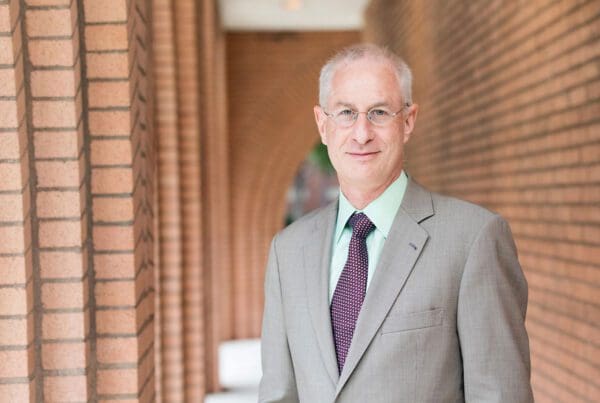
Assistant Professor Jennifer Ailshire
Even with important steps taken to decrease air pollution in recent decades, there are serious health effects connected to auto exhaust and other pollutants in the air we breathe, especially for older adults.
Air pollution can worsen existing heart disease, lung disease, diabetes, and more in older people, says USC Leonard Davis School of Gerontology Assistant Professor Jennifer Ailshire. Her latest research indicates living in a high-pollution environment can also contribute to an increased risk of cognitive problems.
Ailshire, who studies health disparities and how neighborhood and social factors affect health, explained that fine particulate matter, one of the most common forms of air pollution and a component of car exhaust, can travel deep into body tissues once inhaled because of its small size.
“Fine particulate matter can cause inflammation and damage organ systems, including the lungs, heart, and brain,” she says.
A combination of risk factors
The relationship between pollution and brain problems in older people is multifaceted, Ailshire adds. Previous studies have shown that the aging brain is more vulnerable to stress, and the effects of air pollution on cognition appear to be more pronounced in neighborhoods with more stressors, such as crime, disorder, and decay. In addition, individuals who had other health problems that impacted the brain, such as stroke, had a higher risk of more pronounced cognitive losses when faced with air pollution than their peers without brain health issues.
Conversely, higher levels of education seem to protect older adults from cognitive losses connected to pollution; even with the same level of pollution exposure, individuals with more education performed dramatically better on brain function tests, Ailshire says. The idea that education can protect against cognitive problems later in life is known as “cognitive reserve” and is an example of how socioeconomic factors can influence health at older ages.
Lowering risks for older Angelenos
Los Angeles, while having made great strides in managing air pollution in the last few decades, still has some of the nation’s highest amounts of fine particulate matter on average.
This adds a new layer to the discussion of helping older adults age in place healthfully, Ailshire says. Even if a home is designed to help residents remain independent as they age, living in a neighborhood with heavy exposure to air pollution could exacerbate health problems and lead to declines in physical and mental function.
Along with making the home environment itself safe and usable, “we recommend getting in the habit of checking the Air Quality Index, or AQI, everyday along with the weather,” she says, citing the information available at the Environmental Protection Agency’s AirNow site. “It’s a good idea for older adults to reduce or avoid outdoor activity on poor air quality days.”
The article, “Neighborhood social stressors, fine particulate matter air pollution, and cognitive function among older U.S. adults,” appeared online in Social Science and Medicine on November 14, 2016. Coauthors were Amelia Karraker of Iowa State University and Philippa Clarke of the University of Michigan, Ann Arbor.
Ailshire presented the research at the 2016 USC Morton Kesten Summit at the USC Leonard Davis School on October 20, 2016, a gathering of national experts addressing the needs of individuals aging in place. The bi-annual summit and associated Universal Design Competition are endowed by a family member in memory of the late Morton Kesten, an executive of Colonial Penn Insurance Co. at the time it was servicing AARP.





